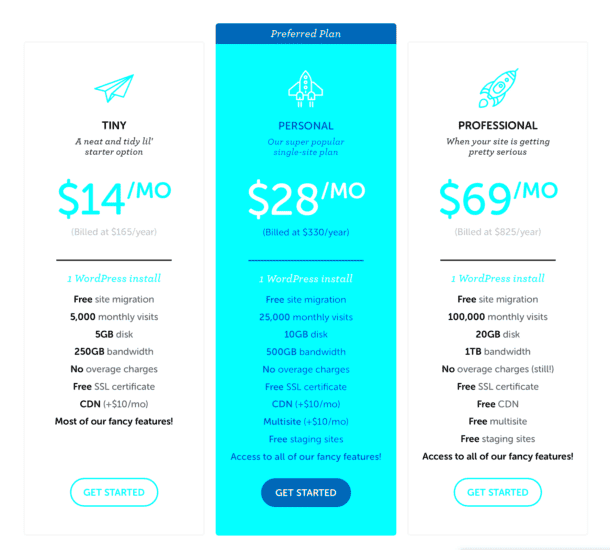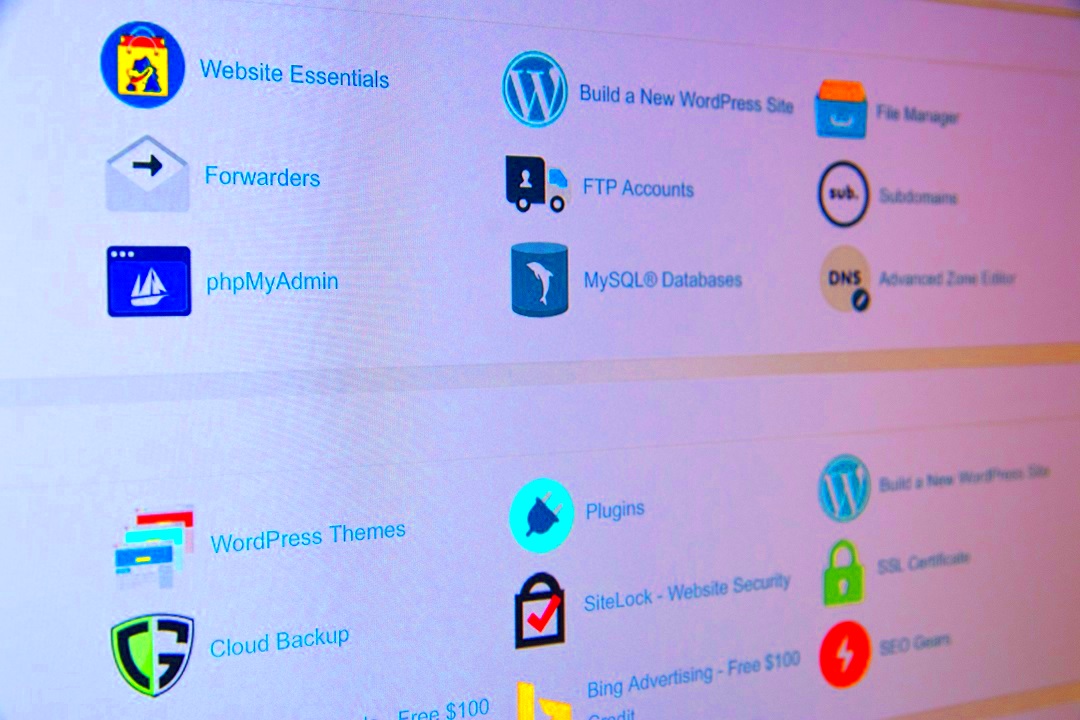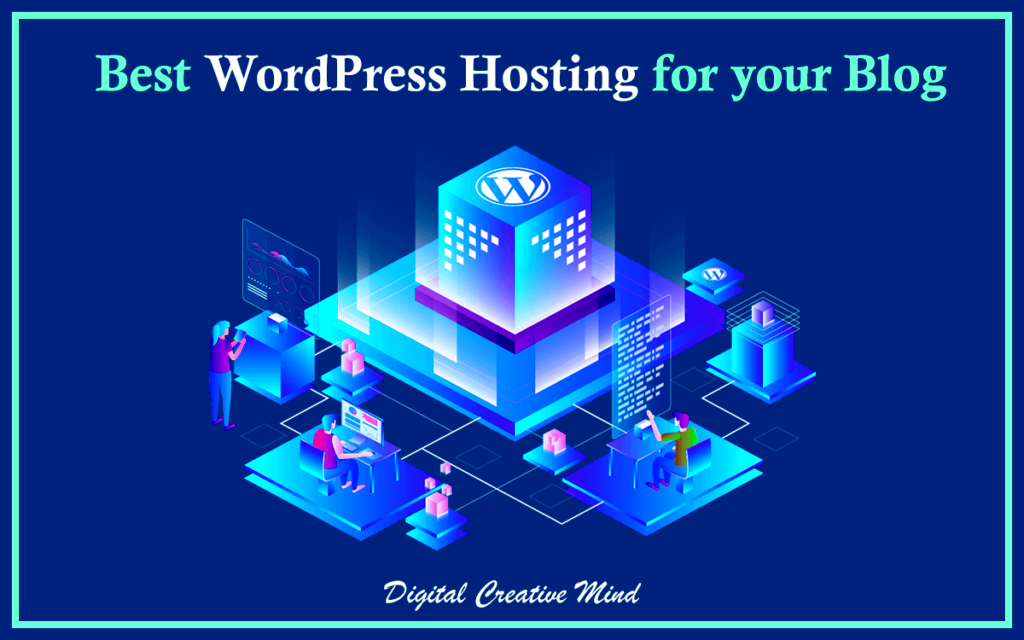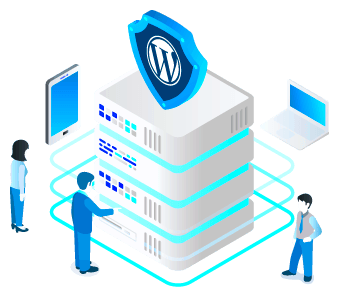WordPress hosting is an essential part of creating a successful website. It provides the server space and technical support necessary for your WordPress site to thrive. With a millions of websites powered by
Types of WordPress Hosting Plans

When it comes to WordPress hosting plans, you have several options tailored to different needs and budgets. Here’s a breakdown of the most common types:
- Shared Hosting
This is the most economical option. Multiple websites share the same server resources, making it affordable. However, it may lead to slower performance if other sites experience heavy traffic.
- VPS Hosting (Virtual Private Server)
VPS hosting gives you dedicated resources on a shared server. It’s a step up from shared hosting, providing more control and better performance. Ideal for growing sites needing more power without breaking the bank.
- Managed WordPress Hosting
This type of hosting is specifically designed for WordPress sites. It includes automated backups, updates, and enhanced security features, allowing you to focus on content rather than technicalities.
- Dedicated Hosting
With dedicated hosting, you have an entire server to yourself. This option is excellent for large businesses or websites with high traffic. It offers maximum performance but comes with a higher price tag.
- Cloud Hosting
Cloud hosting uses a network of servers to balance your website’s resources. This means you can scale easily with traffic spikes and only pay for what you use. Excellent for modern websites that anticipate growth!
When selecting the right plan, consider your website’s current size, future growth, and budget to make an informed decision.
Factors to Consider When Choosing a Hosting Plan

Choosing the right WordPress hosting plan is crucial for your website’s performance and success. With so many options out there, it can get overwhelming. So, let’s break down the key factors you should consider:
- Performance and Speed: Your site’s loading speed can impact user experience and SEO rankings. Look for hosting services that offer optimized performance, typically advertised as having fast server response times.
- Uptime Guarantee: Uptime indicates how often your website is accessible online. Aim for a hosting provider that guarantees a minimum of 99.9% uptime to ensure your visitors can reach your site whenever they want.
- Customer Support: Effective customer service can save you a lot of headaches. Consider a hosting provider that offers 24/7 support, ideally with live chat options for quick troubleshooting.
- Scalability: Your website may grow over time, and you’ll want a hosting solution that can grow with you. Check if they offer easy upgrade options to accommodate increased traffic or resource needs.
- Security Features: Security is paramount. Your chosen plan should include SSL certificates, firewalls, and regular backup options to protect your website from potential threats.
- Pricing Structure: Always look for the fine print in pricing. Consider whether hosting plans offer value for money in terms of features, and if they have renewal rates that won’t break the bank.
- User Friendliness: If you’re new to managing websites, a user-friendly interface can make a big difference. Look for hosting plans with easy setup options and intuitive control panels.
Consider these factors closely, and you’ll be well on your way to choosing the right WordPress hosting plan for your needs.
Shared Hosting vs. Managed Hosting

When it comes to WordPress hosting, you’ll often hear the terms shared hosting and managed hosting thrown around. So, what’s the difference, and which one is right for you? Let’s dive into each option:
Shared Hosting
Shared hosting is like renting a room in a busy apartment building. You share resources with other websites on the same server, making it a budget-friendly option for beginners. Here are some key points:
- Cost-Effective: Shared hosting plans are usually the most affordable. Great for hobby websites or small businesses just starting out.
- Easy Setup: Most providers offer one-click installations, making it simple to get your WordPress site up and running quickly.
- Limited Resources: Resource allocation can be a downside. If one site on the server experiences high traffic, it may slow down others.
- Less Control: You’ll have limited access to server settings, which can hinder more advanced customizations.
Managed Hosting
On the flip side, managed hosting is more like having a team of professionals taking care of your mansion. This service provides a tailored experience with increased performance and security. Here’s what you should know:
- Expert Support: Managed hosting offers WordPress-specific assistance, ensuring you always have experts ready to help.
- Optimized Performance: These plans are specifically built with WordPress in mind, often resulting in faster load times and better reliability.
- Automatic Backups and Updates: Enjoy peace of mind with automated backups and updates. You won’t have to worry about keeping everything current.
- Higher Cost: This level of service tends to come at a premium price but can be worth it, especially for larger businesses with significant traffic.
Ultimately, your choice between shared hosting and managed hosting comes down to your specific needs. If you’re just starting or running a small website, shared hosting may be a great fit. However, if you’re looking for performance, security, and support, you may want to invest in managed hosting.
Performance Factors: Speed and Uptime

When it comes to choosing the right WordPress hosting plan, speed and uptime are two critical performance factors that can make or break your website experience. Imagine waiting for a page to load—it’s frustrating, right? In today’s fast-paced digital world, visitors expect lightning-fast load times. Research shows that even a one-second delay can lead to a significant drop in conversions, and nobody wants that!
Speed is influenced by various elements such as server location, technology stack, and content delivery networks (CDNs). Many reputable hosting companies employ advanced caching mechanisms to ensure quick delivery of your content. Look for features like:
- SSD storage: Solid-state drives can significantly improve speed compared to traditional hard drives.
- Content Delivery Networks (CDN): Distribute your website’s content to servers worldwide to ensure faster loading times.
- Optimized server technologies: Features like HTTP/2, PHP 7+, and Gzip compression can enhance your site’s performance.
Now, let’s not forget about uptime. Choosing a host that guarantees high uptime is essential, ideally over 99.9%. Uptime refers to the amount of time your website is accessible to users. If your site is often down, you risk losing visitors, sales, and credibility. Most hosting providers will offer uptime guarantees and typically include additional services for monitoring and maintenance. Here’s a quick comparison table of common uptime guarantees:
| Hosting Provider | Uptime Guarantee |
|---|---|
| Provider A | 99.99% |
| Provider B | 99.95% |
| Provider C | 99.90% |
In summary, prioritize speed and uptime when selecting your WordPress hosting. It’s worth investing in a plan that provides both to ensure your site runs smoothly and efficiently.
Security Features in WordPress Hosting
Security is another fundamental aspect you should consider while choosing a WordPress hosting plan. In a world where cyber threats are increasingly prevalent, ensuring your website’s safety is paramount. After all, a secure website not only protects your data but also builds trust with your visitors.
When evaluating hosting plans, look for robust security features that go beyond basic protection. Here are some key features to consider:
- SSL Certificates: This feature encrypts the data transmitted between your website and users, making it much harder for attackers to intercept sensitive information.
- Firewalls: A good firewall protects your website from malicious traffic. It acts as a barrier between your site and potential threats.
- Regular Backups: Ensure your hosting provider offers automatic backups. This way, you can restore your site to its previous state if it gets hacked or encounters issues.
- Malware Scanning: Look for hosts that offer continuous malware scans and security patches to keep your site secure from threats.
- DDoS Protection: Distributed denial-of-service attacks can take your site offline. Having a hosting provider that includes DDoS protection can mitigate this risk.
It’s worth noting that some hosting companies offer more advanced security features and packages, so you might want to weigh your options based on your specific needs. Always read the fine print and understand what’s included in your plan.
In conclusion, investing in solid security measures when choosing your WordPress hosting is crucial. Not only does it protect your website, but it also enhances user confidence, which can lead to increased traffic and conversions. So, make security a priority while searching for that perfect hosting plan!
Scalability: Future-Proofing Your Website
When it comes to WordPress hosting, scalability is a crucial factor that often gets overlooked. What does scalability mean in this context? Well, it simply refers to your website’s ability to grow and adapt as your needs change over time. Whether you’re a blogger, a small business owner, or managing an e-commerce platform, your website will likely experience fluctuations in traffic. Choosing a hosting plan that allows for easy scalability can save you from potential headaches in the future!
Imagine starting with a modest blog that suddenly goes viral. You’d want your site to handle the increased traffic without crashing, right? That’s where scalable hosting comes into play. Here are a few points to consider when looking for scalable WordPress hosting:
- Resources Availability: Make sure the hosting provider offers adjustable resources such as CPU, RAM, and storage that you can upgrade as your website grows.
- Easy Migration: Choose a host that provides hassle-free migration options, so you can switch plans without downtime.
- Content Delivery Networks (CDNs): CDNs can distribute your content globally, making it more accessible and reducing loading times.
- Load Balancing: This helps distribute traffic evenly across servers, ensuring optimal performance even during peak times.
In a nutshell, opt for a hosting plan that aligns not just with your current needs but can also adapt to your future requirements. A scalable hosting option will be an investment in your website’s long-term success!
Budgeting for WordPress Hosting
Making a budget for WordPress hosting might seem overwhelming, but it’s an essential step in ensuring your website runs smoothly without financial strain. After all, your hosting plan is one of the fundamental investments in your website. The good news? There are options out there for every budget! Let’s break it down.
When budgeting for WordPress hosting, consider these key factors:
- Type of Hosting: Shared hosting tends to be the most budget-friendly, while dedicated servers can get pricey. Decide what level of service you really need.
- Annual vs. Monthly Billing: Some providers offer discounts for annual plans, saving you money in the long run.
- Hidden Fees: Always read the fine print. Some providers may lure you in with low prices but tack on extra charges for features like backups or SSL certificates.
- Support and Services: Factor in the importance of good customer support. Sometimes, paying a bit more for responsive service can save you from bigger issues later.
To make it even simpler, here’s a sample budget table:
| Hosting Provider | Plan | Monthly Cost | Annual Cost | Key Features |
|---|---|---|---|---|
| Provider A | Shared Hosting | $5 | $60 | 1 Website, 1 GB SSD, Free SSL |
| Provider B | VPS Hosting | $25 | $300 | 5 Websites, 2 GB RAM, Free CDN |
| Provider C | Dedicated Hosting | $100 | $1200 | Unlimited Websites, Full SSD, 24/7 Support |
In summary, take the time to evaluate your options, set a realistic budget, and ensure that your hosting choice aligns with your website’s needs. Happy hosting!
Recommendations for Popular Hosting Providers
Choosing a hosting provider can feel overwhelming, especially with so many options available. To help you navigate this decision, here are some popular hosting providers known for their performance, customer support, and features.
- Bluehost: Often recommended for WordPress users, Bluehost offers affordable plans and a user-friendly interface. Their customer support is available 24/7, and they provide a free domain for the first year. With a one-click WordPress installation, it simplifies getting your site up and running.
- SiteGround: Known for excellent customer service and fast loading speeds, SiteGround is another top choice for WordPress hosting. They offer managed WordPress hosting services, automatic updates, and daily backups. Their strong security features ensure your site remains safe from any threats.
- HostGator: If you are looking for budget-friendly options, HostGator could be your go-to provider. They offer various hosting plans that scale according to your needs. Plus, their 99.9% uptime guarantee ensures your site stays online almost all the time.
- DreamHost: DreamHost is recognized for its commitment to privacy and transparency. They offer unlimited bandwidth and a unique 97-day money-back guarantee. DreamHost also has a strong stance on environmental sustainability, using 100% renewable energy.
- WP Engine: For those who are serious about performance and scalability, WP Engine is a premium managed WordPress hosting provider. They take care of all the technical aspects, allowing you to focus on content creation. Their platform is optimized for speed and security.
Ultimately, the best hosting provider for you will depend on your specific needs and goals. Consider these recommendations as a starting point in your search for the right hosting plan.
Conclusion: Making the Right Choice for Your Needs
As we wrap up our discussion on WordPress hosting plans, it’s essential to take a step back and consider what you truly need from a hosting provider. Remember that every website is unique, and so are the requirements that come with it.
Here are some key points to reflect on before making your choice:
- Assess Your Budget: Hosting services come with varying price tags. Establish what you’re willing to spend each month without compromising on quality.
- Understand Your Website’s Goals: Are you starting a personal blog, an e-commerce site, or a portfolio? Your website’s purpose will significantly influence your hosting choice.
- Look for Scalability: As your site grows, your hosting needs may change. Opt for a provider that allows for easy upgrades to accommodate your growth.
- Evaluate Support Options: Access to good customer support can save you a lot of headaches down the line. Make sure the provider you choose has responsive and knowledgeable support staff.
- Read Reviews: Take some time to research and read reviews from other users. Their insights can provide great information about a hosting provider’s reliability and service quality.
In the end, the right hosting plan should align with your goals, budget, and level of technical expertise. Take your time weighing these options, and remember that there’s no one-size-fits-all solution. Whether you prioritize high speed, excellent support, or user-friendliness, making an informed decision will set the stage for your online success.



